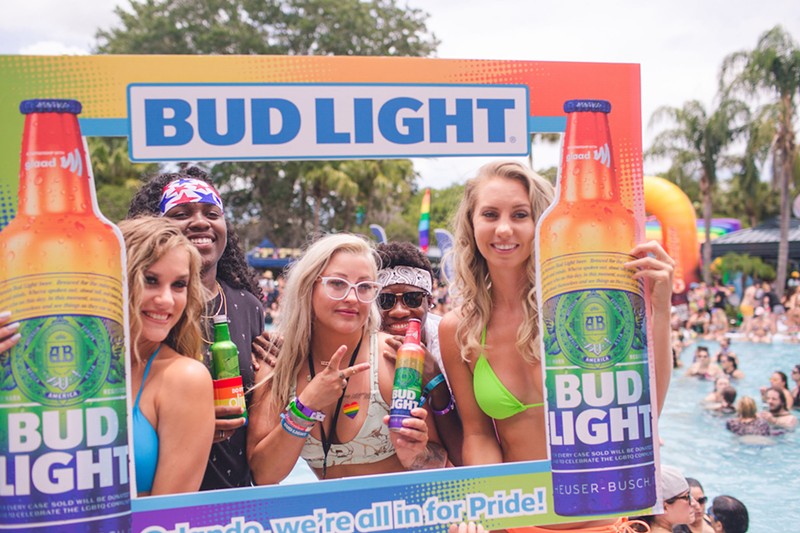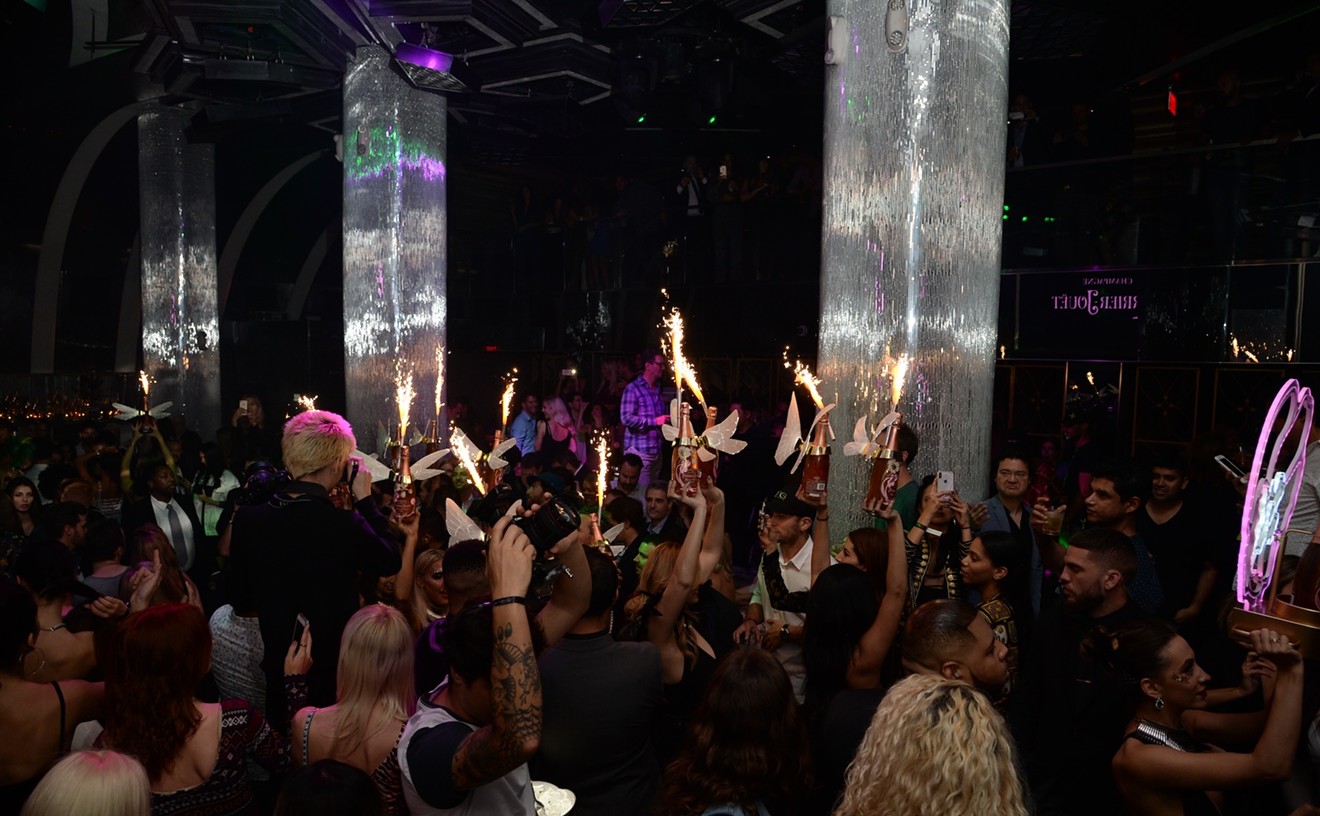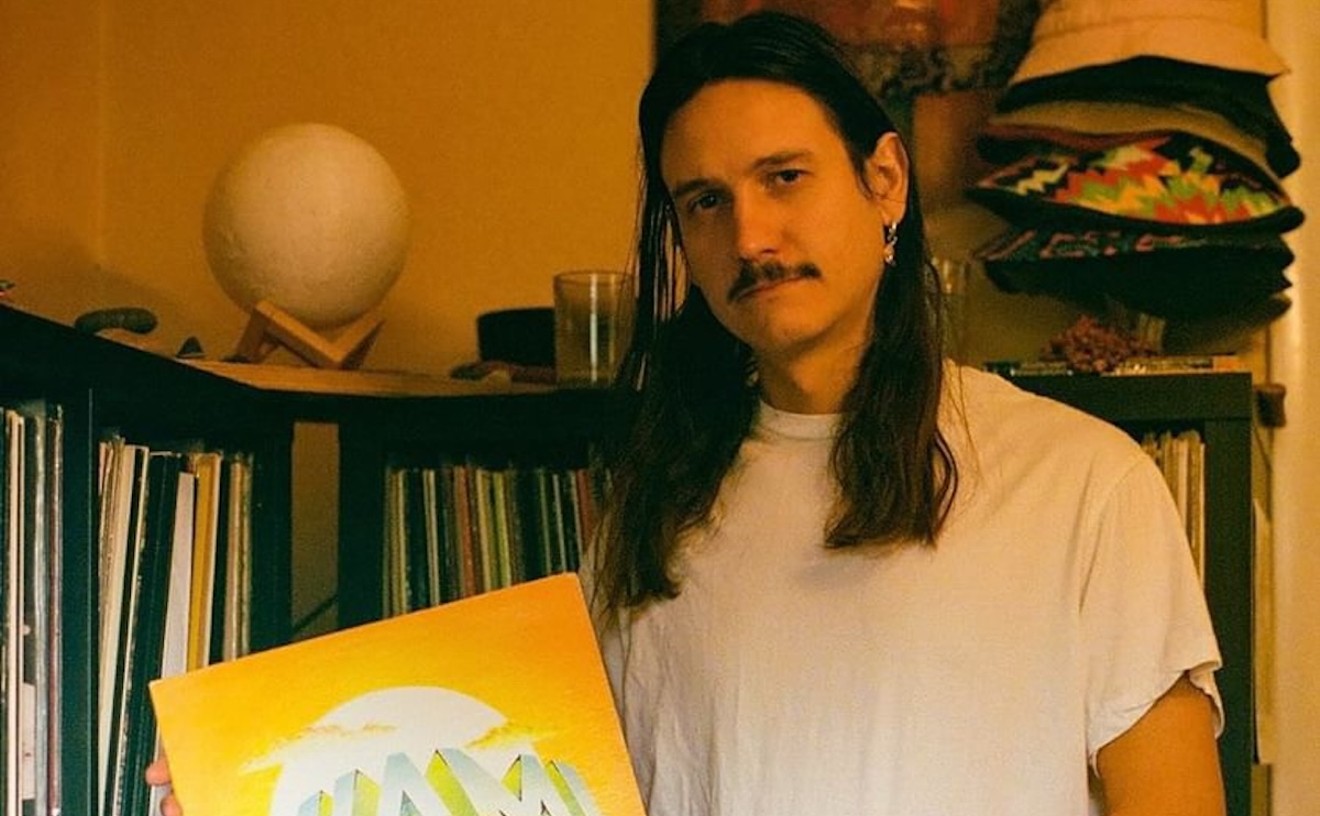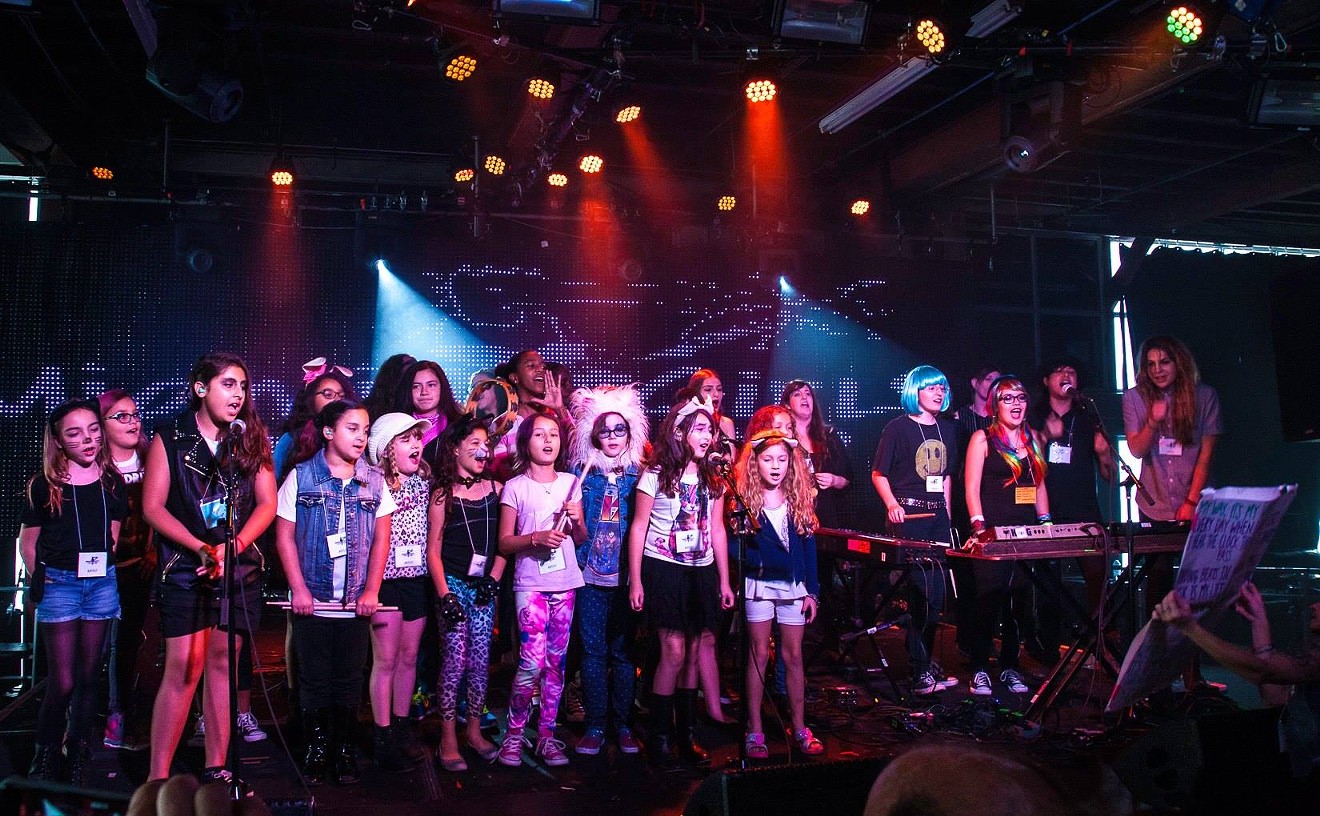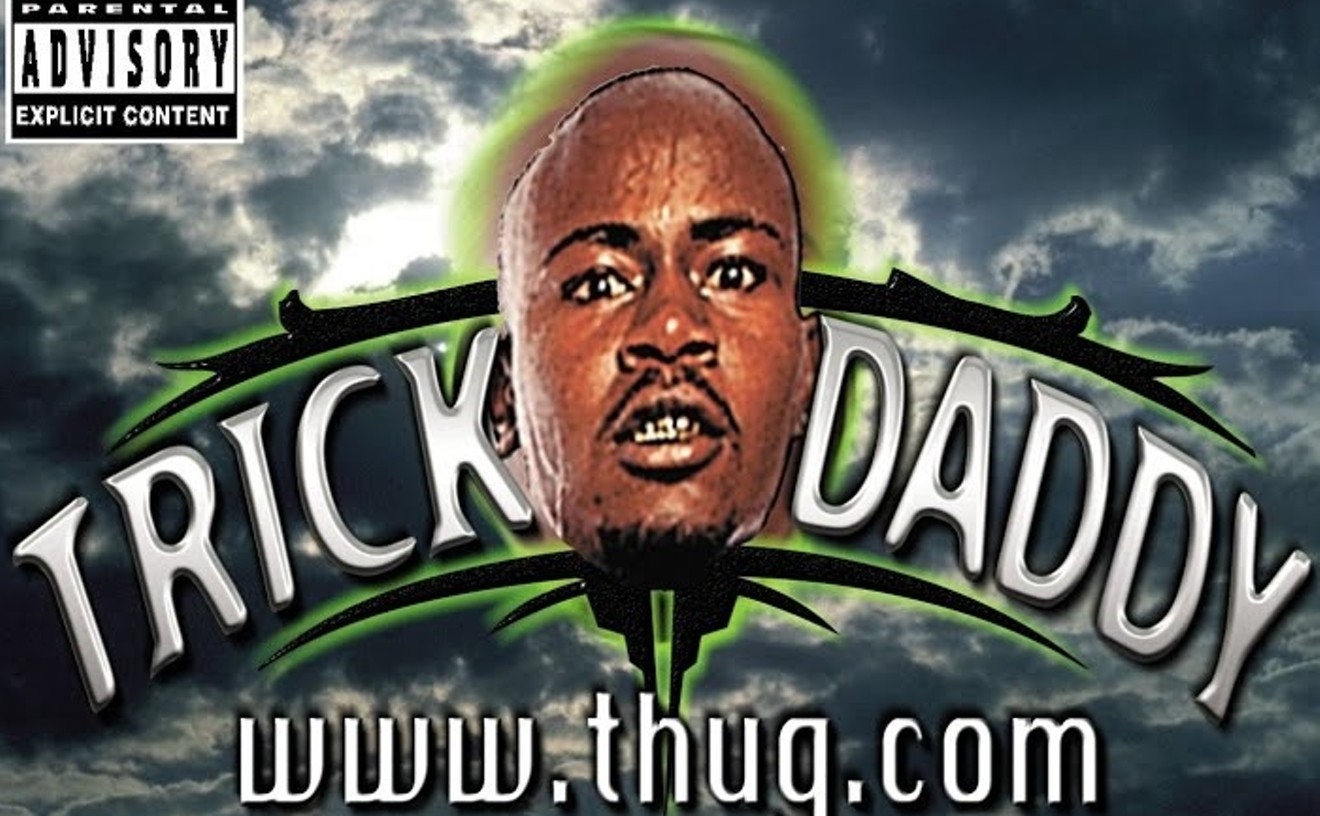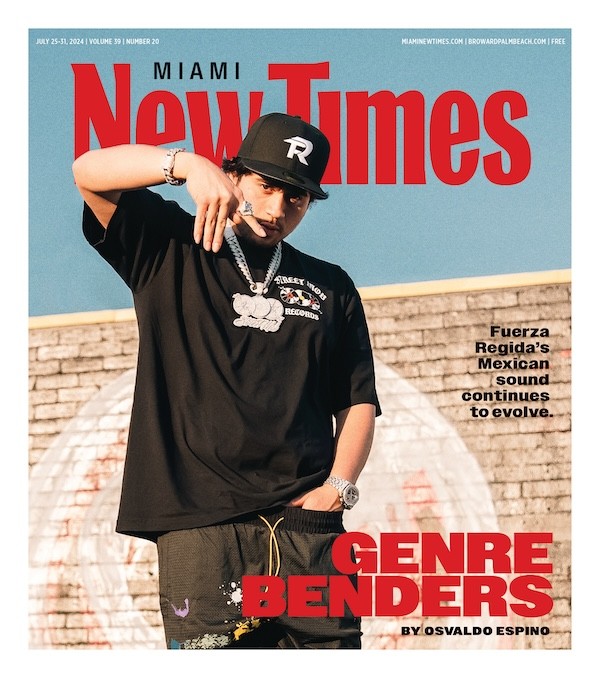"Back in the day, you weren't out," Alison Burgos says. "You weren't walking Lincoln Road holding your partner's hand. There wasn't Facebook or Tinder or Hinge or Her. You were out on Friday or Saturday night at our clubs."
Amid the cries of children at a mommy-and-me class, the co-owner of Pandora Events, founder of Aqua Girl, and board member of the Aqua Foundation reflects on what South Florida's lesbian scene used to be.
When you think of Miami's LGBTQ+ scene, queer women and lesbian spaces rarely come to mind. Likely, images of Miami Beach, with the hot sand between your toes and sun-scorched gays smiling in bright patterned swimsuits, pop up. Maybe you think of Gramps with its drag nights, alluring cocktails, and welcoming environment.
But what about the lesbian scene?
In the 1980s, there were about 200 lesbian bars in the U.S. Now there are about 15.
And after New Moon in Wilton Manors closed in 2014, there are no exclusively lesbian bars in all of Florida, leaving it up to events like Girls in Wonderland, the June party put on by Pandora, to maintain those lesbian spaces. (Apt. 9F in Wilton Manors is lesbian owned and operated, but it doesn't cater exclusively to a lesbian clientele.)
"In its infancy, Pandora was started by [Amy Alonso and Yesenia Leon]. They wanted to create just a cool, very sexy party. They created one party and then a couple more, and then I joined them," Burgos says. "That happened 22 years ago, in 1999. They just wanted to create something sexy, beautiful, and a really cool dance experience. We created the first Women's White Party, and after that, Girls in Wonderland, which is now the largest women's festival in the country."
While those sporadic events thrive, dedicated lesbian spaces continue to close down.
Now married with a family, Burgos says living out and proud wasn't possible back in the day. Lesbian bars and parties weren't merely entertaining spaces; they were safe havens where queer women could be themselves.
And it all started with one woman: Leslie Cohen.
"Are you aware of the news of the passing of Leslie Cohen?" asks Burgos, adding that one can't discuss the lesbian nightlife scene without bringing up the LGBTQ+ activist. "Cohen passed away last month from brain cancer. She was a trailblazer. I stand on her shoulders — as do all LGBT women, club promoters, and producers. She opened one of the first LGBT women's clubs in the country in the 1970s, called the Sahara in the Village."
From opening a popular lesbian nightclub to writing a memoir of her personal queer love story, Cohen's accomplishments are too vast to list in their entirety. Until her death, she lived in Miami with her wife, Beth. In South Florida, she played a significant role in the lesbian scene.
It's because of women like Cohen that lesbians can walk into any venue without fear. Queer women can marry and raise families. Burgos believes this to be the reason lesbian bars and spaces have dwindled. She also notes how lesbian relationships function differently from those of cisgender gay men.
"It's very simple: For women, connecting and meeting is social," she explains. "Once they become connected and find a mate or someone they're dating, you won't see them in the club anymore. For men, it's much more sexual. There's a lot of sex, connection, and hookups that happen in men's clubs and bars. Even within a relationship, men will go out two to three times, whereas women will make an appearance once a month. So it's just not sustainable now that we can go out anywhere."
There's also the safety aspect.
"In the old days, a women's club was the only place we could be out and not feel like you'd be judged or harassed," Burgos notes.
In her experience, Burgos says, it's easier to be out in non-queer-specific spaces as a woman these days than it is for gay men. If a gay man flirts with a potentially straight guy, he risks his physical safety.
But with the recent passage of Florida's "Don't Say Gay" bill and Texas' anti-trans law, is it truly safe for queer people? While LGBTQ+ people can marry and have kids, it seems as if children from LGBTQ+ families will be unable to discuss their home life in classrooms. It's a fear that directly affects Burgos' young family, along with many other queer families across the nation.
As more anti-gay laws are discussed and passed in Florida, dedicated lesbian spaces may be needed now more than ever.

Audio By Carbonatix
[
{
"name": "Air - MediumRectangle - Inline Content - Mobile Display Size",
"component": "19274298",
"insertPoint": "2",
"requiredCountToDisplay": "2",
"watchElement": ".fdn-content-body",
"astAdList": [
{
"adType": "rectangle",
"displayTargets": "mobile"
}
]
},{
"name": "Editor Picks",
"component": "17482312",
"insertPoint": "4",
"requiredCountToDisplay": "1",
"watchElement": ".fdn-content-body",
"astAdList": [
{
"adType": "rectangle",
"displayTargets": "desktop|tablet"
},{
"adType": "rectangle",
"displayTargets": "desktop|tablet|mobile"
}
]
},{
"name": "Inline Links",
"component": "18711090",
"insertPoint": "8th",
"startingPoint": 8,
"requiredCountToDisplay": "7",
"maxInsertions": 25
},{
"name": "Air - MediumRectangle - Combo - Inline Content",
"component": "17482310",
"insertPoint": "8th",
"startingPoint": 8,
"requiredCountToDisplay": "7",
"maxInsertions": 25,
"watchElement": ".fdn-content-body",
"astAdList": [
{
"adType": "rectangle",
"displayTargets": "desktop|tablet"
},{
"adType": "rectangle",
"displayTargets": "desktop|tablet|mobile"
}
]
},{
"name": "Inline Links",
"component": "18711090",
"insertPoint": "8th",
"startingPoint": 12,
"requiredCountToDisplay": "11",
"maxInsertions": 25
},{
"name": "Air - Leaderboard Tower - Combo - Inline Content",
"component": "17482313",
"insertPoint": "8th",
"startingPoint": 12,
"requiredCountToDisplay": "12",
"maxInsertions": 25,
"watchElement": ".fdn-content-body",
"astAdList": [
{
"adType": "leaderboardInlineContent",
"displayTargets": "desktop|tablet"
},{
"adType": "tower",
"displayTargets": "mobile"
}
]
}
]

